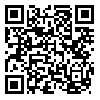BibTeX | RIS | EndNote | Medlars | ProCite | Reference Manager | RefWorks
Send citation to:
URL: http://tumj.tums.ac.ir/article-1-7709-en.html

 , Abbas Ghanbari-Niaki *
, Abbas Ghanbari-Niaki * 
 2, Mehran Naghizadeh Qomi3
2, Mehran Naghizadeh Qomi3 
 , Mohammad Mehdi Moghanny Bashi4
, Mohammad Mehdi Moghanny Bashi4 

2- Department of Exercise Biochemistry, Faculty of Physical Education and Sport Sciences, University of Mazandaran, Babolsar, Iran. ,
3- Department of Statistics, Faculty of Mathematics, University of Mazandaran, Babolsar, Iran.
4- Department of Genetics, Faculty of Medicine, Kazeroon Branch, Islamic Azad University, Kazeroon, Iran.
Background: The purpose of the current study was to investigate the effect of a high- intensity running (12 weeks) with bee pollen on gastrocnemius muscle ABCA1 and apoA1 mRNA expression in male rats.
Methods: In the present semi-experimental study, 24 white male Wistar rats aged 8 weeks with an average weight of 90±20 were prepared from the Pasteur Institute of Amol, Iran. The rats were kept in a room with dimensions of 6×5 meters under controlled conditions of light (12 hours light, 12 hours darkness, light began at 6 am, and the darkness began 6 pm), temperature (22±3 ºC) and moisture content (about 45%) from November to the end of February 2013. After a week of familiarity with laboratory space and manipulation by human, the rats were divided with simple random sampling into four groups matched by weight: saline-control, bee pollen-control, saline-training and bee pollen-training. Rats were sacrificed 48 h after the last training session. Data were analyzed statistically using two-way ANOVA and a significance level of 0.05.
Results: The results of the present study showed that intense endurance training decreased non-significantly in the gastrocnemius muscle. In addition, the bee pollen caused a significant increase in ABCA1 gene expression in the gastrocnemius muscle of male rats (P< 0.0001). while apoA1 not expressed in the gastrocnemius muscle.
Conclusion: The results of this study showed that high-intensity running reduces ABCA1 gene expression is severe. In addition, consumption of bee pollen can increase ABCA1 gene expression in the gastrocnemius muscle. According to the results of the present research, the bee pollen intake is more effective than intense endurance training on ABCA1 gene expression in gastrocnemius muscle of male rats and plays an important role in reverse cholesterol transport.
| Rights and permissions | |
 |
This work is licensed under a Creative Commons Attribution-NonCommercial 4.0 International License. |



